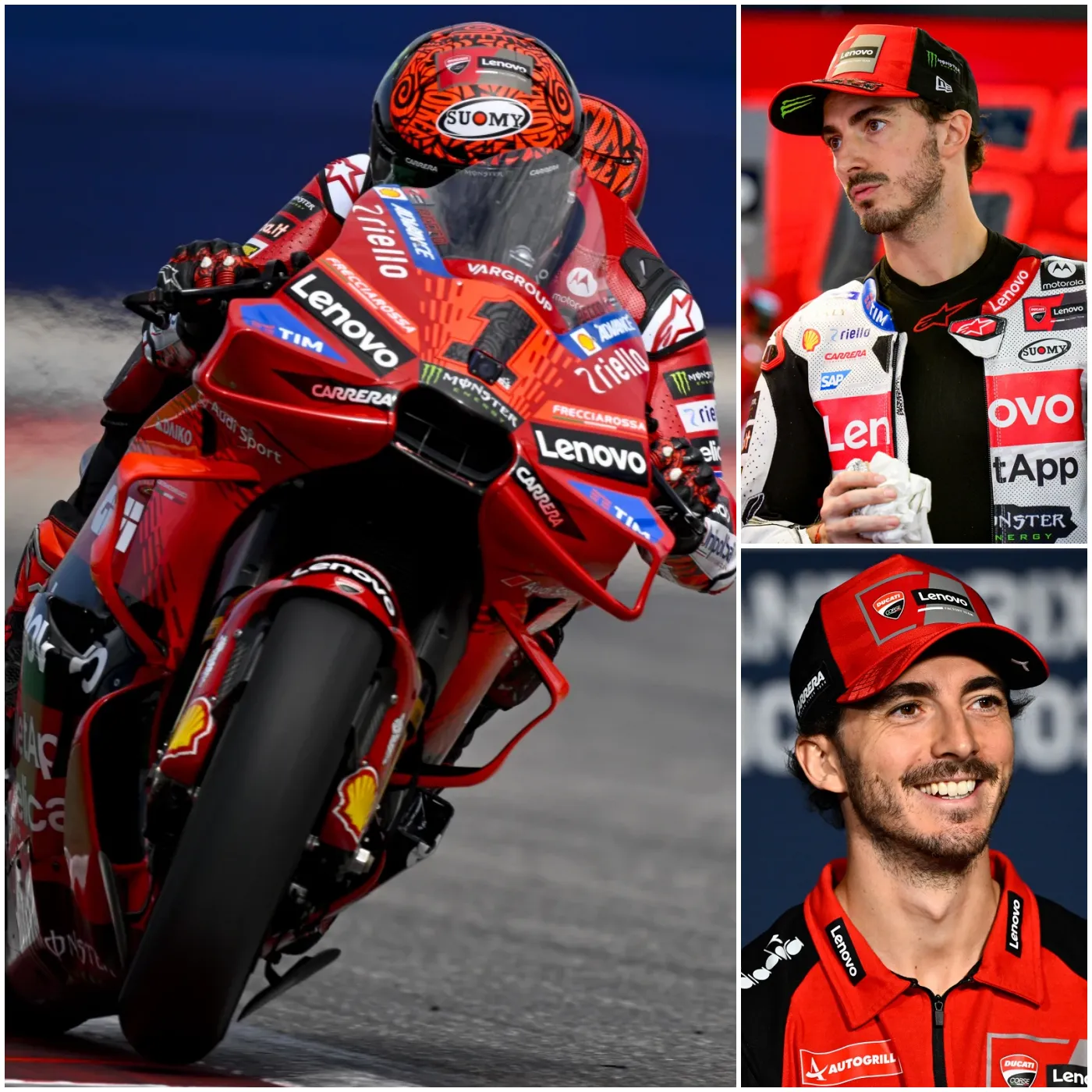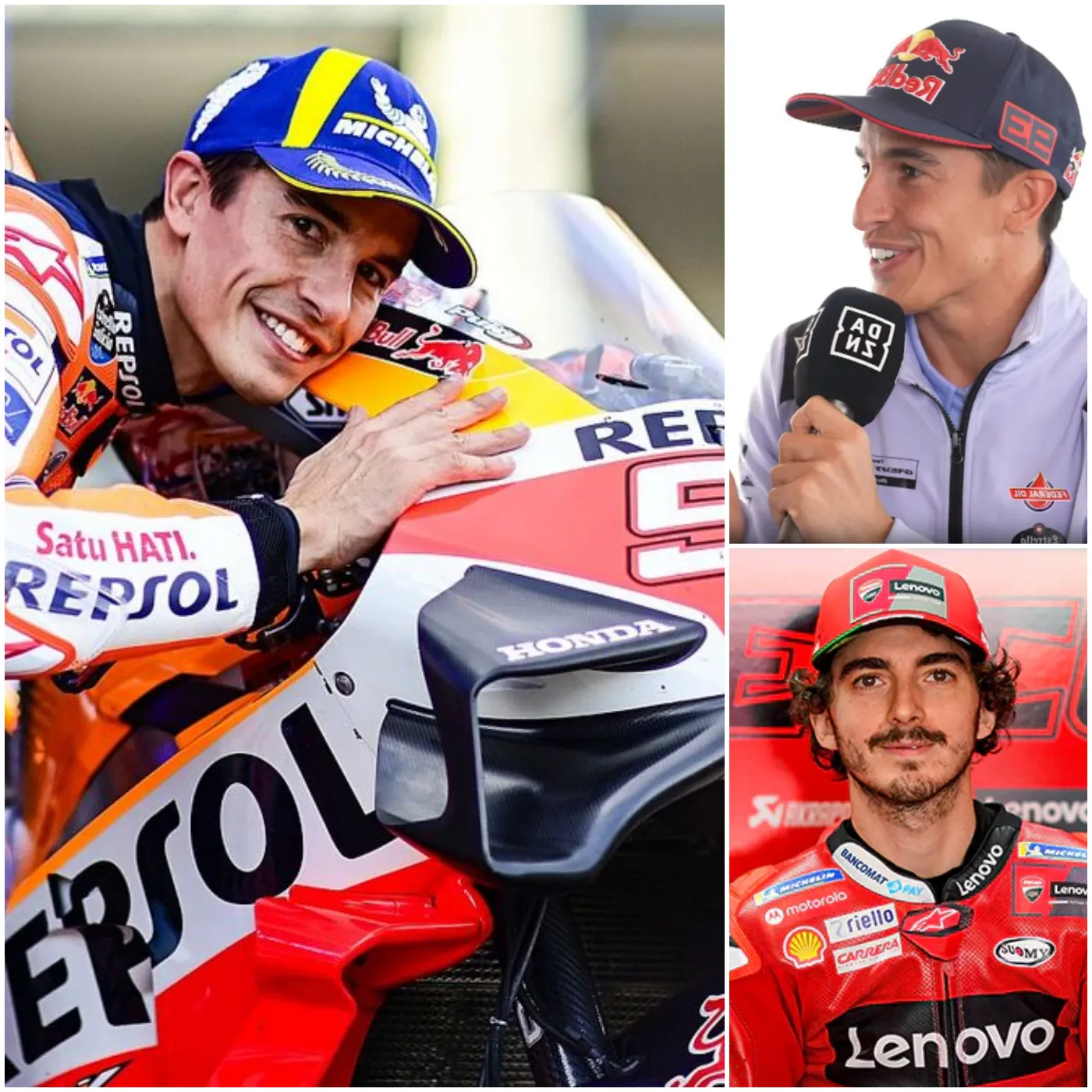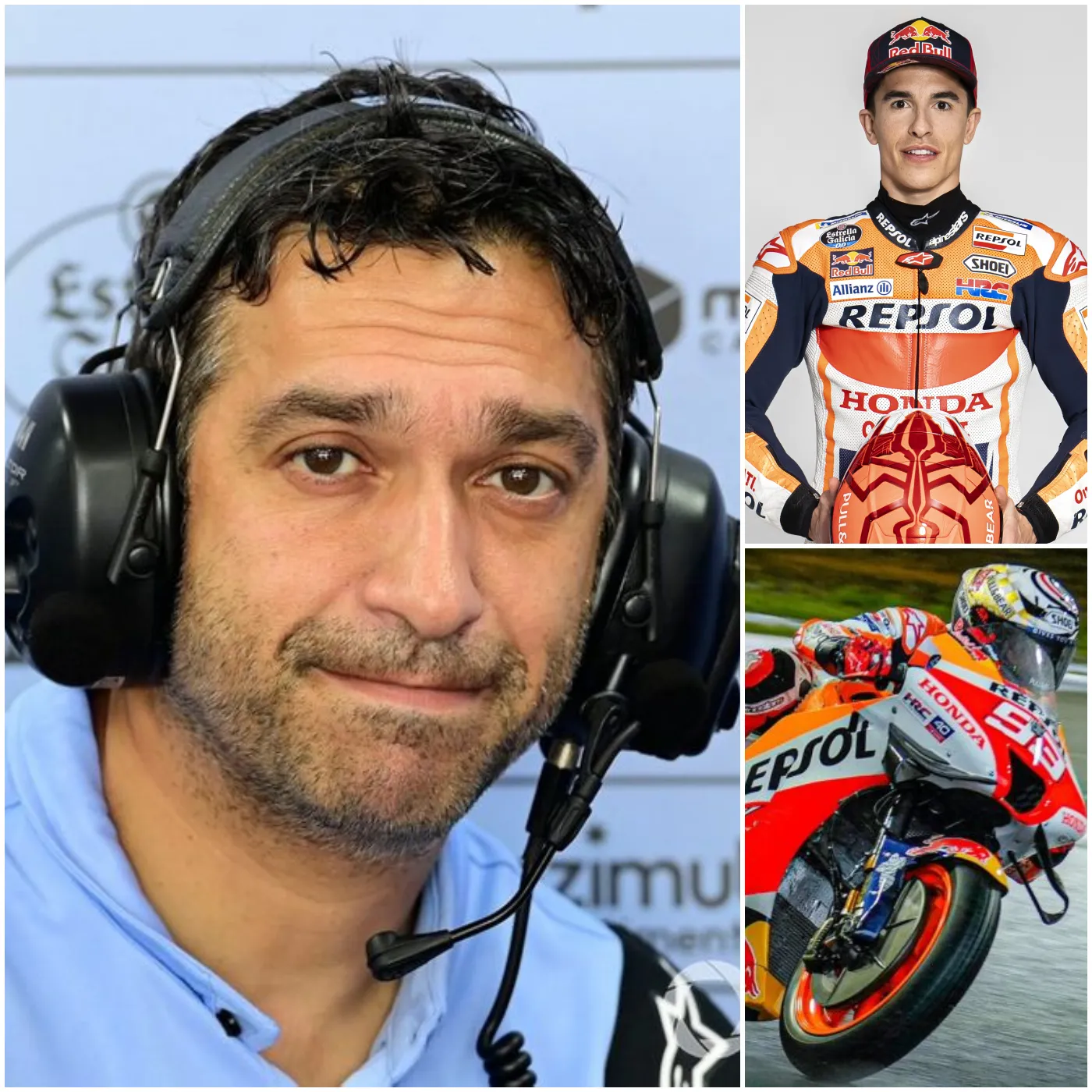In the high-stakes world of MotoGP, where the battle for the championship is often defined by split-second decisions and fierce rivalries, a bombshell statement from Francesco “Pecco” Bagnaia has sent shockwaves through the paddock. Bagnaia, the reigning MotoGP world champion, recently made a stunning claim: “If I win, Ducati will no longer play fair.” This comment has ignited a firestorm of controversy, stirring up debates about the ethics of competition, the role of Ducati in the championship, and whether this statement reveals more than just frustration.
The Drama Behind Pecco’s Statement: A Bold Allegation
At first glance, Bagnaia’s statement seems like a veiled accusation against his own team, a rider who has been at the forefront of Ducati’s dominance in the sport. The question on everyone’s lips is simple: What did he mean by this cryptic remark? Was he suggesting that Ducati could use unsporting tactics to ensure his victory, or was this a product of the immense pressure he is under as the MotoGP champion?
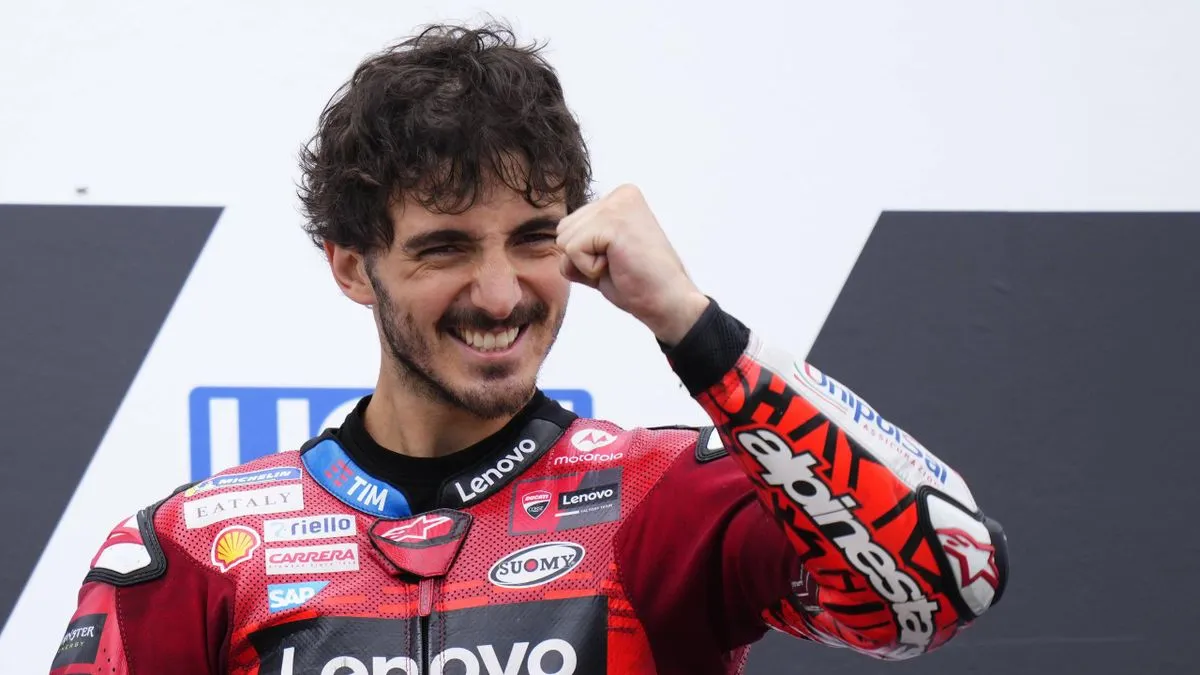
In MotoGP, victory doesn’t come easy, and the pressure to perform at the highest level can lead to moments of frustration. For Pecco Bagnaia, a rider at the top of his game, the weight of defending the MotoGP title often feels like a double-edged sword. It’s not just about racing against competitors; it’s about dealing with the expectations placed on him by both his team and the fans. His comments, while shocking, may stem from the mental strain of trying to stay at the top in a season filled with fierce competition and ever-evolving dynamics.
The Ethics of Competition: What Does Ducati’s Role Really Mean?
For many, Bagnaia’s statement raises serious questions about the ethics of competition in MotoGP. Ducati has been a dominant force in recent years, with riders like Bagnaia and Jorge Martín pushing the boundaries of performance. But could there be more going on behind the scenes? The idea that Ducati might resort to unsporting behavior if they need to secure a victory is a controversial one.
Some might argue that the statement is an exaggeration, a mere expression of frustration from a rider who feels the burden of the championship. But others see it as a genuine concern about Ducati’s role in shaping the outcome of races. After all, MotoGP has always been a sport with a fine line between tactics and questionable practices. Bagnaia’s remark serves as a reminder of the dark side of competition, where the desire to win can sometimes cloud the integrity of the sport.
Pecco Bagnaia and the Burden of the Champion: Is This Just a Mind Game?
Another perspective on Bagnaia’s comment is that it could be a mind game—a calculated move to get into the heads of his competitors. As the MotoGP champion, Pecco Bagnaia is fully aware of the psychological warfare that plays out on and off the track. In a sport as competitive as MotoGP, sometimes the mental aspect of racing can be just as important as physical performance.
By making this bold statement, Bagnaia may be attempting to stir controversy and shift the focus away from his own performance. Ducati is undoubtedly one of the most dominant teams in MotoGP, and Bagnaia’s position within the team gives him a certain level of leverage. Perhaps, by suggesting that Ducati might resort to unsporting tactics, he’s trying to put the pressure on others and divert attention from his own struggles.
Ducati’s Future in MotoGP: Will This Impact Their Legacy?
For Ducati, the implications of Bagnai’s statement could be far-reaching. The team has worked tirelessly to establish itself as one of the most powerful forces in MotoGP, with cutting-edge technology and world-class riders. But if the suggestion that Ducati could compromise their ethics for the sake of winning gains traction, it could damage the team’s reputation.
MotoGP fans and pundits alike will be watching closely to see how Ducati responds to these remarks. If Bagnaia’s comments are indeed a reflection of internal tensions, it could signal a shift in how the team approaches competition moving forward. The team’s legacy in MotoGP could be at risk if their reputation is tarnished by accusations of dishonesty or unsporting behavior.
The Bigger Picture: What Does This Mean for MotoGP?
In the grand scheme of MotoGP, Pecco Bagnaia’s statement adds a layer of intrigue to an already intense season. The pressure of defending a title is immense, and for a rider like Bagnaia, whose every move is analyzed by fans and critics alike, every comment becomes a potential catalyst for controversy. His remarks about Ducati could be seen as a reflection of the sport’s ever-present tension between fair play and the cutthroat desire to win at any cost.
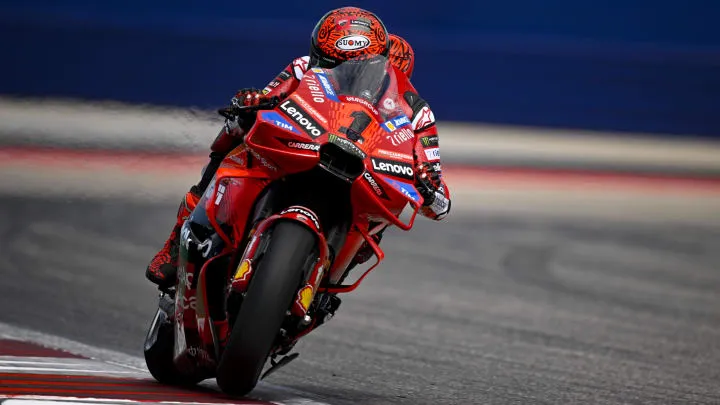
In the end, MotoGP is a sport built on speed, skill, and strategy. But as Bagnaia’s comment shows, it’s also a sport where the stakes are so high that even the most innocent remark can spark debate, controversy, and drama. Will Ducati continue to dominate the sport with its innovative technology and tactical brilliance, or will Bagnaia’s statement prove to be a warning sign of deeper issues within the team?
A turning point in MotoGP?
The words of Francesco Bagnaia have certainly shaken the world of MotoGP to its core. His shocking statement, “If I win, Ducati will no longer play fair,” raises critical questions about the integrity of competition and the lengths teams will go to secure a victory. Whether it’s a moment of frustration or a genuine concern, Bagnaia’s comments have added another layer of drama to an already thrilling season. The world of MotoGP will be watching closely to see how this drama unfolds and whether it will have lasting consequences for Ducati, Bagnaia, and the sport as a whole.
